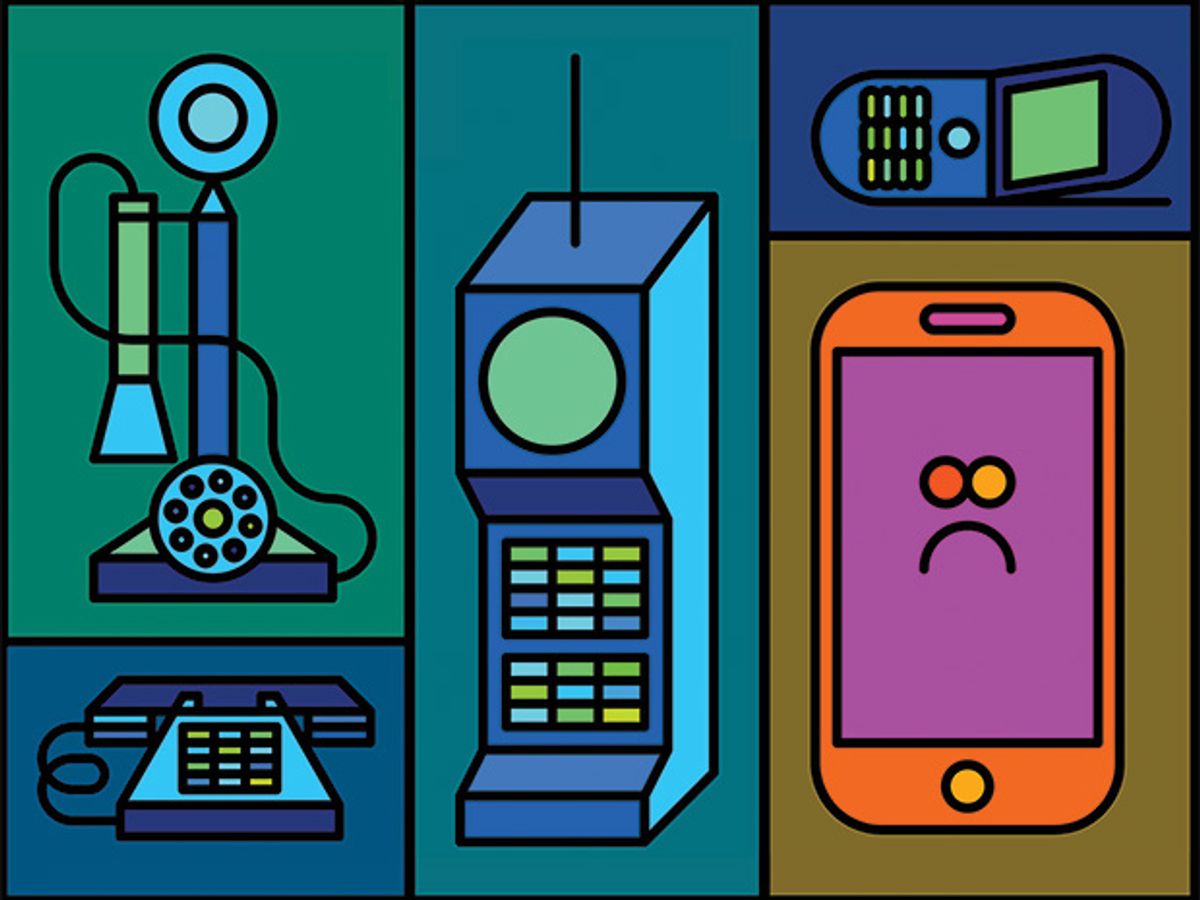Recently I was listening to a talk—ostensibly about the future—in which the smartphone was pictured as an evolutionary end point that would last indefinitely. I thought, Nothing is forever, and forever comes very quickly in technology. I started to worry about what would come after the smartphone, and what the end of the smartphone’s dominance would mean to the electronics industry.
The smartphone has been an incredible success, both in technological and business terms. I often think of it as the pinnacle of engineering brilliance. There is an entire ecosystem of parts, systems, software, even design philosophy, that has built up around it. Anything that can be made from smartphone technology can be made quickly, easily, and inexpensively. It has been the most successful electronics product ever.
But there are dark clouds on the horizon. The good news is that practically everyone has one. The bad news is that practically everyone has one. Moreover, the new models seem to offer diminishing advances in performance and features that are easily apparent to users. The ads for Apple’s iPhone often say that the new model is its best iPhone ever. Well, duh, of course. Imagine if the ads said that the new model wasn’t quite as good as the previous one!
I remembered my father’s old rotary-dial telephone from my youth. He still had it in the 1990s, and several times I suggested that he should get a new telephone. “What for?” he would say. “The new ones do the same thing.” And I would think, He has a point there.
The standard landline telephone lasted almost a century. In electronics, this probably does qualify as being forever. Meanwhile, other things—turntables, tape decks, cassette players, beepers, and so forth—came and then were suddenly gone as if they had never existed (although turntables are making something of a comeback to cater to the neonostalgic crowd). Perhaps, like my father’s phone, the smartphone will endure for decades. But also, like that old telephone, it may be something everyone will have, and there will be no compelling reason to buy a new one.
Certainly, the smartphone can be further improved. We need better battery life, faster and wireless charging, and I’d like to see the camera have optical zoom. But on the other hand, users may not see the need for better displays and faster processors. Meanwhile, the supporting infrastructure will see evident improvements—gigabit wireless speeds, greater coverage, better integration with Wi-Fi, and cheaper service plans. However, my concern here is with the smartphone itself. I think of it as the little engine that could—pulling the entire electronics industry in its frantic rush to keep up with the acceleration required by Moore’s Law. What if that little engine that could runs out of steam?
I know that I’m asking unanswerable questions, and my own response is only to propose a dream goal—that we invent another electronic device that everyone wants and needs. Maybe the smartphone will drive the market, but maybe not. Either way, I feel the need for some new device that I just can’t do without. I look forward to wanting that new gadget.
